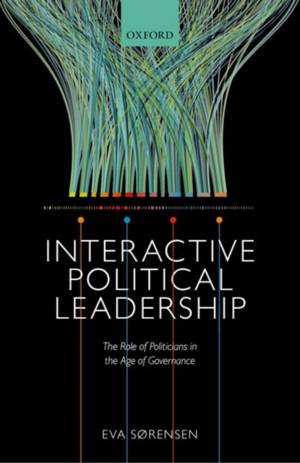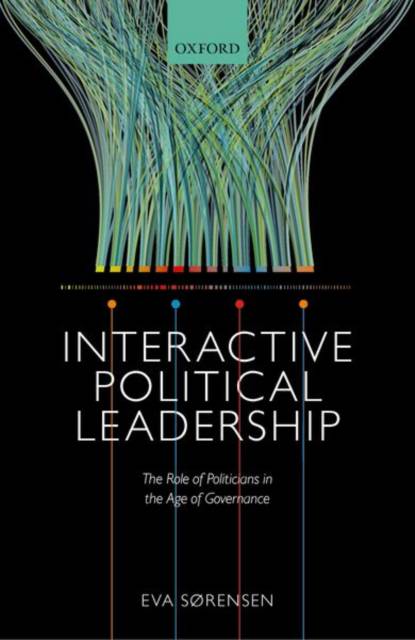
- Afhalen na 1 uur in een winkel met voorraad
- Gratis thuislevering in België vanaf € 30
- Ruim aanbod met 7 miljoen producten
- Afhalen na 1 uur in een winkel met voorraad
- Gratis thuislevering in België vanaf € 30
- Ruim aanbod met 7 miljoen producten
Zoeken
Interactive Political Leadership
The Role of Politicians in the Age of Governance
Eva Sorensen
Hardcover | Engels
€ 169,45
+ 338 punten
Omschrijving
Building on recent theories of interactive governance and political leadership, Interactive Political Leadership develops a concept of interactive political leadership and a theoretical framework for studying the role of elected politicians in the age of governance. The purpose of the theoretical framework is to inspire and guide empirical research into how elected politicians perform political leadership in a society where citizens and other stakeholders play an active role in making and implementing political decisions and what barriers, challenges, and dilemmas they encounter in relation to the performance of interactive political leadership. The research framework draws extensively on recent theories of interactive governance and political leadership and other new developments in political science and public administration research. Moreover, it finds inspiration in current tendencies and embryonic examples of interactive political leadership performed by elected politicians operating at different levels of governance in Western liberal democracies. The basic assumption is that political legitimacy is essential for the survival of a political system, and that interactive political leadership stands out as a promising way of securing what political scientists denote as input-, throughput-, output-, and outcome legitimacy in the age of governance. Hence, interactive political leadership aims to establish a bridge between representative democracy and emergent forms of political participation, to promote political learning and accountability, to strengthen the political entrepreneurship of elected politicians, and to advance the political system's implementation capacity through resource mobilization. The book develops 20 propositions that sets the agenda for a new and much needed field of empirical research into political leadership in the age of governance.
Specificaties
Betrokkenen
- Auteur(s):
- Uitgeverij:
Inhoud
- Aantal bladzijden:
- 234
- Taal:
- Engels
Eigenschappen
- Productcode (EAN):
- 9780198777953
- Verschijningsdatum:
- 30/03/2020
- Uitvoering:
- Hardcover
- Formaat:
- Genaaid
- Afmetingen:
- 155 mm x 236 mm
- Gewicht:
- 362 g

Alleen bij Standaard Boekhandel
+ 338 punten op je klantenkaart van Standaard Boekhandel
Beoordelingen
We publiceren alleen reviews die voldoen aan de voorwaarden voor reviews. Bekijk onze voorwaarden voor reviews.











